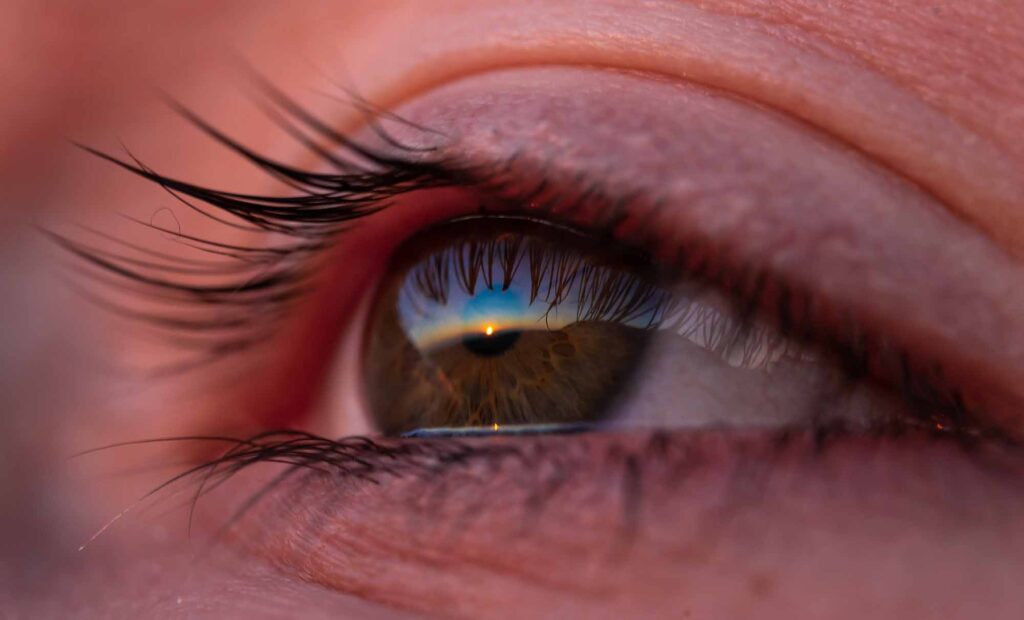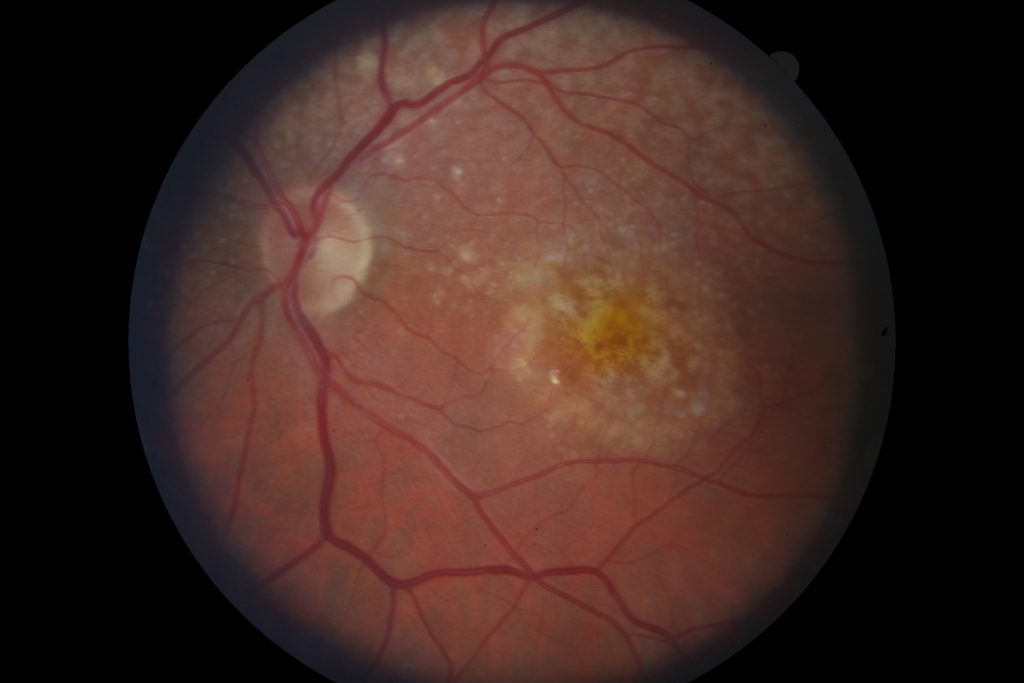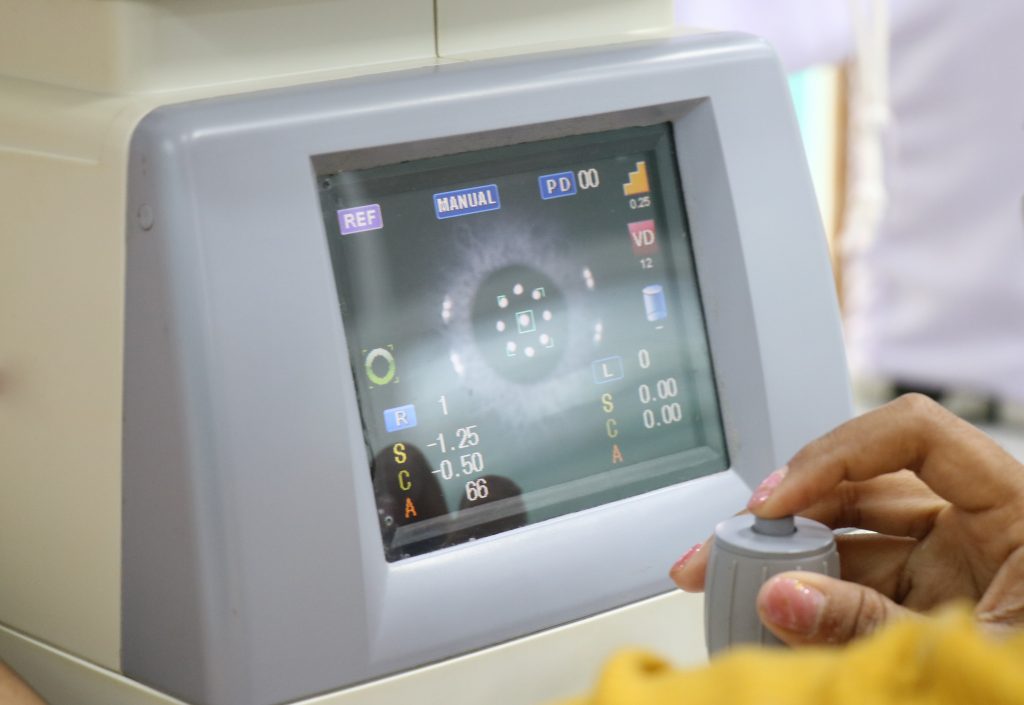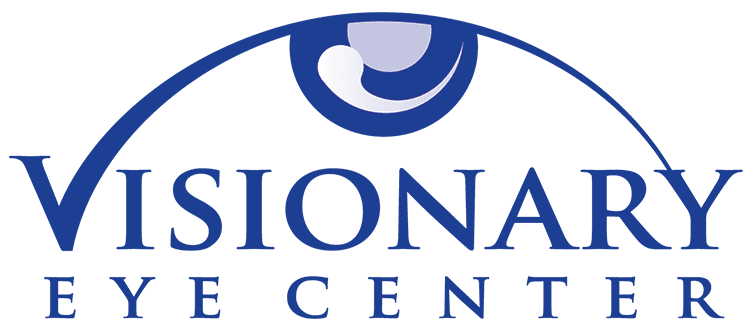SHOP DRY EYE CARE TODAY!
Use code VISIONARYEYE20 at checkout for 20% off!
In the vast landscape of vision correction, refractive surgeries have emerged as remarkable marvels of modern medical science. From the rudimentary days of radial keratotomy, we have traveled a revolutionary path, leading us to procedures that have not just changed vision but lives. At the forefront of this journey stands the Visionary Eye Center, constantly evolving to offer top alternatives to LASIK.
Modern refractive surgery's inception began with photorefractive keratectomy (PRK). Almost in tandem, LASIK (laser-assisted in situ keratomileusis) soon followed, becoming ubiquitous not just in Reno, NV but globally. These state-of-the-art procedures quickly eclipsed radial keratotomy, owing to their enhanced safety, predictability, and stability. Both these methods deploy a laser to meticulously reshape the cornea. LASIK involves a flap formation laid over the treated area, catering to those seeking swift recovery. In contrast, PRK targets those with larger prescriptions, applying the laser directly sans flap. A fusion of the two, LASEK (Laser epithelial keratomileusis), employs a gentle epithelial slide off the eye's front, subsequently replaced post-treatment, often resulting in decreased dryness.
For those with high prescription values or a reluctance to permanently alter their corneal tissue, ICL (Implantable Contact Lens) offers a brilliant solution. This procedure delicately places a lens between the iris and the eye's natural lens. It's reversible and minimally invasive, ensuring a trauma-free experience.
The journey into presbyopia, experienced post the age of 40, demands specialized solutions. One of the groundbreaking procedures involves the implantation of corneal inlays such as Kamra or Raindrop. These inlays enhance the eye's depth of focus by leveraging a pinhole effect, reviving near vision. Another feather in the cap of presbyopic treatments is the refractive lens exchange, which replaces the natural lens with an intraocular implant lens. It's essentially cataract surgery but provides options from distance to multifocal vision.
Orthokeratology, fondly known as ortho-k, offers a non-surgical panorama to reshape the cornea and optimize vision. These specialized corneal molds reshape the eye's front surface, primarily during sleep. Tracing its roots to the 1950s, today's ortho-k has the FDA's nod from 2002. While its multiple names, from gentle vision shaping to corneal refractive therapy, might seem complex, its objective remains singular - exceptional vision.

Ideal candidates? Nearsighted individuals with prescriptions under -6.00D sphere and below -1.75D of cylinder or astigmatism. The younger brigade, especially children, adapt with ease, often seeing faster results. With recent technological strides, mild farsightedness and presbyopia too find themselves under the ortho-k umbrella. Particularly beneficial for swimmers and those battling contact lens-induced dryness, ortho-k eliminates daytime lens wear.
Safety remains paramount with ortho-k. Using advanced oxygen permeable materials, it’s as safe as regular contact lens wear. The reversible nature of ortho-k is a boon, ensuring vision returns to its original state upon discontinuation.
Nestled in the heart of Reno-Sparks, Visionary Eye Center emanates from a dream to proffer bespoke eye care solutions. Every individual's vision narrates a unique story, demanding equally unparalleled corrective tools. This philosophy fuels the center's drive to provide custom contact lenses and frames.
Independence is the hallmark of Visionary Eye Center. Eschewing the trappings of large chains or franchises, the center fosters genuine doctor-patient relationships, a rarity in today's commercialized medical landscape. Yet, this traditional relationship doesn't preclude them from harnessing the latest technology and treatments.
An educated patient, they believe, is an empowered patient. By illuminating patients about treatment options, Visionary Eye Center ensures individuals remain at the heart of every decision. Their dedication to vision resonates not just in their cutting-edge offerings but in their commitment to fostering a community informed and passionate about eye health.
So, whether you're considering a deep dive into vision correction or merely seeking an authentic, personalized eye care experience, Visionary Eye Center beckons, promising a future where every vision is clear, and every patient feels seen.
In today's world, where advancements in medicine and technology are progressing at breakneck speeds, questions about the aftermath of treatments are just as important as the treatments themselves. One frequently asked question for those considering refractive surgery is, "Can you drive home after LASIK eye surgery?"
To answer this, let's first journey through the evolution of modern refractive surgery and understand its nuances. Visionary Eye Center, the premier provider of LASIK in Reno, will be taking a deep dive into the effect of LASIK surgery on driving.

Long before LASIK came into the picture, there was radial keratotomy. However, modern refractive surgery truly began with the groundbreaking invention of photorefractive keratectomy (PRK). Soon after PRK, the world welcomed LASIK (laser-assisted in situ keratomileusis) eye surgery. A procedure that is now readily accessible not just in global hubs, but also right here in Reno, NV.
Compared to radial keratotomy, both PRK and LASIK were leaps and bounds ahead, offering increased safety, predictability, and stability. While both utilize lasers to reshape the cornea, LASIK involves creating a flap that's placed over the treated area, whereas PRK directly applies the laser without creating a flap. This distinction means that LASIK usually ensures a quicker recovery, making it a popular choice among many. Meanwhile, PRK is recommended for those with larger prescriptions.
But the world of refractive surgery doesn't end there. There's also LASEK (Laser epithelial keratomileusis), which merges the best of both worlds. Instead of creating a flap, the epithelium is gently slid off and then replaced post-treatment. And for those with more significant prescriptions or a preference against permanent corneal tissue removal, there's the option of an ICL (Implantable Contact Lens).
Presbyopic patients aren't left behind either. With innovations like the Kamra or Raindrop corneal inlays, reading vision can be restored. Another noteworthy procedure is the refractive lens exchange, similar to cataract surgery, replacing the natural eye lens with an intraocular implant lens, offering various vision settings.
Now, understanding the intricacies of these procedures, it becomes paramount to choose the right center. That's where Visionary Eye Center in the Reno-Sparks area comes into focus.
Visionary Eye Center isn't just another eye care provider. Born from the commitment to offer bespoke eye care solutions, they believe in tailoring treatments to fit each individual's unique vision. Whether it's custom frames that resonate with your personality or specialized contact lenses designed for your comfort, their offerings are as unique as you.
Independence is a virtue that Visionary Eye Center holds dear. Steering clear from the mold of multi-practice chains or franchises, they offer patients an opportunity to build genuine, lasting relationships with their doctors. But don't mistake their belief in traditional doctor-patient relationships as being archaic. Their independence ensures they remain agile, adopting the latest in eye care technology and treatments. This means you aren't restricted to outdated procedures or bulk products.

Perhaps most importantly, Visionary Eye Center thrives on empowering its patients. Their philosophy is simple yet profound: an educated patient makes better health decisions. With a plethora of information available on their site and regular updates on their social platforms, they ensure you're well-equipped to make the best choices for your eyes.
To circle back to our initial question: Can you drive home post-LASIK? It's recommended to have someone drive you home as your vision might be blurry or hazy for several hours. But when you're deciding where to get LASIK, driving a little extra to ensure you're in capable, caring hands is worth every mile.
So, if you're contemplating LASIK or any other eye procedure, look no further than Visionary Eye Center. With cutting-edge technology, individualized treatments, and a dedicated team, it truly is vision care at its finest.
Disclaimer: The information provided in this blog is for general informational purposes only and should not be considered as medical advice; always consult with a qualified healthcare professional before making any decisions related to your eye health.
Age-related vision issues can affect anyone over time, and may not be apparent right away. Even if you haven’t experienced vision issues during your life, some conditions can begin to surface when you’re 40 or older. At Visionary Eye Center, our Reno optometrist recommends the following tips to preserve your eye health:
After you turn 40, it’s important to receive an eye exam every year. This helps to record and track any changes that may affect your vision. If you are experiencing any of the following symptoms, we recommend consulting an optometrist to mitigate risks and provide treatment where necessary:

Like it or not, you become more susceptible to vision issues as you age, and some can be debilitating. From dry eyes, to cataracts, to macular degeneration, an experienced eye doctor can diagnose and produce a treatment plan to suit you.
Dry eye is more debilitating as you age. While it may seem common in Northern Nevada thanks to our dry climate, there may be other factors contributing to the symptoms of burning, redness and tearing. As many as 3 million women and 1.7 million men over 50 in our country are affected by the syndrome.
How does dry eye occur? Tear film dysfunction has many causes, including computer use, contact lens wear, makeup, hormone changes associated with aging and autoimmune disorders, which further increase the risk of corneal scars or infections.
Optometrists also see numerous patients with cataracts, the leading cause of blindness in the world. Cataract symptoms include a decrease in visual clarity, foggy vision, glare, and halos of light. Cataract surgery is a simple outpatient surgery and the artificial lenses placed during it will last for the rest of your lifetime.

Retinal scan of dry macular degeneration
Lastly, macular degeneration is the primary culprit for blindness in adults over 50. While these patients never go completely blind from the condition alone, it certainly devastates their independence. There are two versions of macular degeneration: wet and dry. At Visionary Eye Care Center, we diagnose and manage both conditions with help from our local retinal specialists.
It turns out the advice of “don’t stare too long at the TV” is still true, thanks to our phones and other electronic devices. Recent studies show that we blink less than half as often when looking at a screen, which can lead to dryness and eye fatigue.
Our Reno family eye care experts suggest that everyone, at any age, should practice the 20-20-20 rule when using a screen. Just looking at something 20 feet away, for 20 seconds, every 20 minutes, will help reduce the dryness and eye strain of computer vision syndrome.
Using proper eye protection outdoors is also important. UV rays are harsh on your eyes in the long term. Sunglasses work wonders to protect your eyes from the elements and reduce your risks of cataracts, pterygia and macular degeneration.
Lastly, a balanced diet that is rich in Omega-3s, Vitamins C and E, and zinc, can help combat age-related eye disease. These supplements are often used to combat the effects of dry eye and slow the progression of dry macular degeneration.

All in all, simple changes to your lifestyle and new habits will help prolong your eye health. If you’re experiencing changes in your vision or have questions about how to protect your eyes, make an appointment at our Reno optometrist office today.
 775.827.1100info@visionaryeyecenter.com8175 South Virginia Street Suite B-900
775.827.1100info@visionaryeyecenter.com8175 South Virginia Street Suite B-900